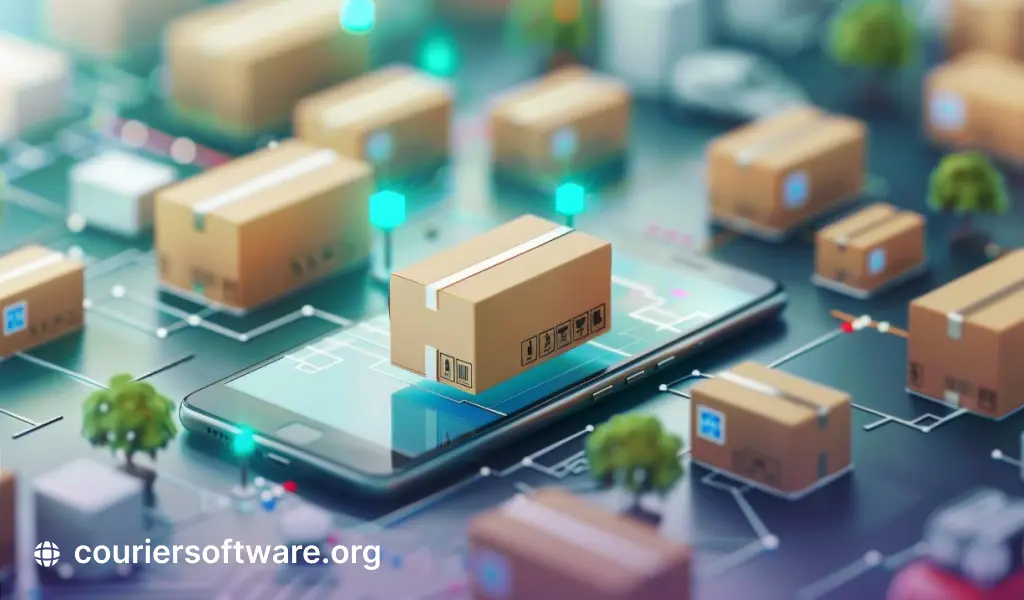Gaining knowledge about the impact of e-commerce growth on the courier industry is crucial. which has caused a reversal of the delivery ratio from B2B to the B2C segment. And with the development of e-commerce, consumer preferences have become increasingly fundamental in the courier market, which was previously oriented especially towards the needs of business customers. Thus, for the key players in e-commerce, but also for start-ups, last-mile deliveries are a business element that differentiates them from the competition and ensures their success on the market.
Impact of E-commerce on the Courier Industry in the UK
Some trends that directly impact and transform the courier industry:
- The consumer holds the power.
- The transformation of supply chains as a result of the growth generated by the Internet.
- The increase in demand, but also the volatility of the market.
- Product mix means lower profit per parcel.
- Investments to increase capacity, but a decreasing rate of return on invested capital.
- Cannibalization of B2B by B2C.
- The expansion of small and medium-sized multinational companies.
- Awesome technologies change the rules of the game.
- The battle is on segmental last-mile deliveries.
- Costs are rising faster than revenues.
Based on the Medium article, the courier market was and remains one of the most dynamic markets, in continuous development, both as a result of the change in business models and consumer behavior. All the industries we work with have registered growth, but it is already known that the biggest growth has been registered by e-commerce, which continues its upward trend.
The evolution remains positive, most likely, the average growth percentage at the market level is around 10%. The explosion of the e-commerce market has produced important changes in terms of the share of customers who use courier services.
British People’s Appetite for E-commerce
The main opportunity is given by the increase in consumption, against the background of the increase in British people’s appetite for electronic commerce, new players entering online (such as food deliveries), and the expansion of the service portfolios of courier companies (temperature-controlled deliveries , e-type services – fulfillment, etc.).
The instability of some important market players and its possible urbanization are two important aspects that we depend on and that we constantly analyze. The courier is the interface of the online store with the end customer and sometimes the only human interaction he/she has in the purchase made, from the store.
That is precisely why it is very important that at the end of the delivery, the consumer is not only satisfied but also convinced to repeat the online shopping experience and transform it into purchasing behavior. The ever-increasing volume of deliveries is a constant challenge both for the management of courier companies and for the couriers themselves, who have to deliver more, faster, and better.
Today’s buyer of courier services – and here I mean the segmental B2C – is becoming increasingly sophisticated and impatient, consequently more critical than in the past. Changing its purchasing model does not come with a correct understanding of the chain between the click that completes the order and the moment when the courier knocks on the door.
The consumer overlaps the time gained because he/she no longer stands in line at the hypermarket with the time in which the package bought online should arrive in his possession.
The courier is not competing either with the traditional store, nor with the online one, nor with the end customer. He/she is “contracted” to provide a safe service, which means maximum care in product handling, precision, and guarantee. We think that both for our industry and for e-commerce the main challenges in the near future are that of educating the end customers the correct understanding of the process between the online order and the actual delivery and that of educating our own couriers in offering services of the best possible quality.
Supply Chain Management has Evolved in the UK
Survey data shows that one of the most important impacts of e-commerce on supply chain management is the shortening of product life cycles.
As a result, producers can offer deeper, and broader product ranges as a buffer against price declines. However, this also means that larger quantities of goods have to be stored and removed from warehouses.
In response, warehouse operators can offer the following value-added services to make the e-commerce process more seamless and effective:
- Separation of inventory/storage for online and retail sales: Calculate forecasts, and replenish inventory separately for online and store sales for more accurate results.
- Various packaging services: Choosing the right pick, and pack software can help companies ship orders quickly and accurately.
- Inventory monitoring and logistics: Applying inventory management best practices is key to managing inventory levels.
The Role of Technology in the Courier Industry
The market has matured and been significantly modernized with technology in recent years, precisely to optimally cover the needs of e-commerce. This is still the sector with the biggest impact on the courier business. And in the future we expect that e-commerce will maintain an upward trend and trace the trends in the profile market. In this context, we believe that the services will evolve and will be increasingly calibrated to the customers’ requirements.
The vast portfolio of clients from various segments allows us to say that British people have received or shipped products from all industries, predominantly those from fashion, toys, books, care products, but also food for animals.
E-commerce is the main business generator for all couriers in the UK, a context in which we observe a justified evolution of same day deliveries. It is natural and it is, more than that, the reason why new niches in the courier market will also appear in the UK. In fact, we have observed a remarkable evolution in the segment of deliveries in one hour and we expect the trend to be maintained in the future.
A recent study among online retailers shows that they are increasingly demanding and want integrated courier services, flexibility in the commercial relationship. Other important aspects for e-commerce players are pick-up and delivery schedules, card payment on delivery, efficient communication, fast delivery including same day, non-standard deliveries, and 24-hour refund transfer.
In addition, a lot of emphasis is also placed on the behavior of the couriers. All these requirements will constitute the main development directions of the market in the future and will raise the quality standards of the services offered by the market players.
The Impact of Courier Software on the Courier Industry
Accessible from any web browser, using Courier Software generally only requires an internet connection. No hardware installation and maintenance fees are charged to the customer. All you need is a monthly subscription to use this tool, and also benefit from updates and additions of new features. Everything is managed by Courier Software and deployed automatically.
Courier Software is one of the other pioneers of courier software with a SaaS approach. Courier Software is developing its services in the field of providing hosting courier application production technology to complete its software services.Courier Software has focused on the production of software as a catalog of hosting services and products along with applications, according to the idea of the on-demand market. Courier Software is designed to guide customers and help them find the most breathtaking courier software for their delivery industry.
Conclusion
So, the impact of e-commerce growth on the courier Industry is undeniable. The customers are more demanding today and have very high expectations. They want products to be delivered on time and safely. At the same time, they are looking for the best purchase, the best products, the best quality, the best price, and best delivery cost.
They look carefully at the company that makes the delivery of the purchased product, and if it does not inspire them with confidence, they may decide to abandon the online store, and look for their product elsewhere.






